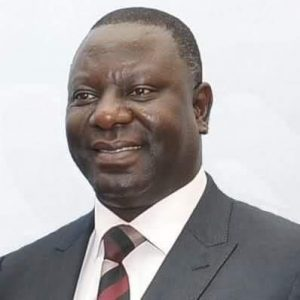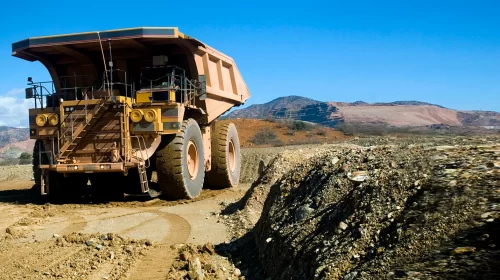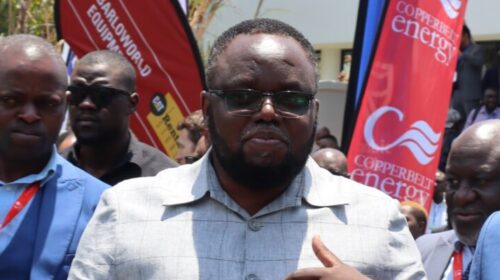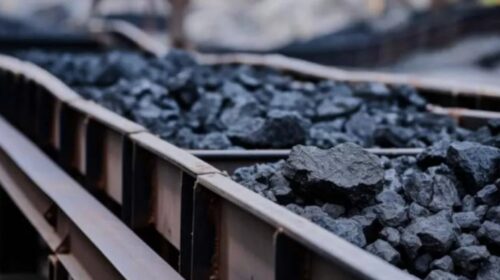How could the 2023 Budget drive continued economic growth for Zambia?
As is tradition, ahead of the annual Budget announcement by the Minister of Finance, Mining For Zambia spoke to celebrated Zambian economist, Professor Oliver Saasa, to ask him about the measures we might expect to see introduced in order to drive continued economic growth, one year since the ‘new dawn Government’ took the helm.
Ahead of the announcement of the 2022 Budget in October 2021, much of the country eagerly waited to hear what President Hichilema’s administration had in store. Almost a year on, what would you say have been the biggest changes to Zambia’s economic position that Government has set in motion and, similarly, some of the biggest challenges?
There are a number of things that must be celebrated, in my view. Zambia has been in a serious economic quagmire. To some extent, this is a function of underperformance in terms of economic growth, which is partially explained by the governance and economic management issues that panned out in the last few years. We also managed to contract sovereign debt to the extent that we were no longer able to meet our repayment obligations. This has caused major problems across the board in terms of social welfare provisioning. The challenge, therefore, has been to actually look for solutions.
Now, with Zambia’s IMF-supported program in place, we can address the elephant in the room: the debt. The entry of the IMF spells good tidings. It allows Zambia to return to the global village where there is fiscal prudence and management of our economy, alongside other like-minded countries. It allows us to receive advice from multilateral institutions on the challenges that the country is facing – in particular, how to manage the debt situation we’re in, whilst at the same time maintaining public services. It also opens up opportunities to begin discussions with Zambia’s creditors. These are the opportunities that everybody has been waiting to see and, once this is approved, we’ll see a lot of action. This is significant and systemic change, set in motion by the new Government.
The IMF board needed to see Zambia demonstrate fiscal prudence, and to implement a moratorium on debt. Certain infrastructure projects have since been cancelled by the new Government, which you’ve personally been recommending for years. Has enough fiscal prudence been demonstrated in your view, or what else could be done?
There’s a lot still to be done. We need to see more in terms of the management of the economy, and the extent to which Government partners with the private sector. That is one song that I never tire of singing! The role of the private sector must be pivotal, going forward. In the next Budget, I’m expecting to see measures that focus more on production rather than consumption, and policies that allow the private sector a more proactive role in the economic affairs of the country, to help realise our development goals.
For a very long time, the private sector was excluded – and sometimes even seen as the opposition. In April 2022, President Hichilema launched the Public-Private Dialogue Forum, which is intended to bring the private sector closer to the Presidency. All these things are still in the offing but, going forward, one sees hope that the country is being governed better and with more efficiency than was previously the case.
“I’m expecting to see measures that focus more on production rather than consumption, and policies that allow the private sector a more proactive role in the economic affairs of the country, to help realise our development goals.“
When it comes to the mining sector, are there any changes to be celebrated?
We ought to celebrate the removal of the non-deductibility of mineral royalties, and the fact that it allows the mines to treat these as a predictable production cost. For me, that has been the biggest plus. This is a measure that has been bashed in the media, mostly by people who do not appear to understand the logic behind this policy stance and who often mistake it as a “tax holiday”. The deductibility of mineral royalties is standard protocol in most copper (and other mineral) producing countries globally. Comparator countries have implemented this same policy, so Zambia’s Government should be congratulated on its adoption of a global norm.
Do you expect to see an adjustment of the mineral royalty structure, to a sliding scale that operates in a similar way to PAYE (as you had hoped would be the case in the last Budget)?
The introduction of a sliding scale for MRT is still very much on the table, and I hope to see some positive traction, whereby Government recognises that – in order for the mining tax regime to be attractive enough to secure further investment – the computation of MRT structure needs to be amended. You see, mineral royalties are not calculated on profit but on revenues, and the computation is based on the average copper price on the London Metal Exchange. I think it’s important that Government recognises the need for policy to further incentivise production. The current formula makes mining companies dread a rise in the copper price because they are liable to pay MRT [at a higher rate, in a different tax band] on the total revenue, rather than on the difference above the previous tax threshold, leading to very perverse and punitive outcomes. Adjusting this system would still allow Government to benefit from increased tax rates when prices increase – via gradual increases, but mines too would benefit, thus aligning their incentives to increase production when the price is high. When the copper price goes up, everybody – Government and the taxpayer – should reap the rewards.

Another barrier to investment is the fact that the effective tax rate for mining companies in Zambia remains one of the highest in the world. Would decreasing the headline rates for the MRT bands in order to reduce the overall effective rate go some way to encouraging investment, in your view?
Indeed, this would help to bring Zambia back in line with other mining jurisdictions that compete for the same investment capital. Considering that the current Administration has exhibited seriousness in attracting foreign direct investment, it is advisable that it makes the environment even more hospitable than Zambia’s competitors. The investors that go to the DRC are the same that come to Zambia. It’s important to remember that we are fishing from the same pond!
“The investors that go to the DRC are the same that come to Zambia. It’s important to remember that we are fishing from the same pond!“
First Quantum’s commitment to investing a further $1.35 billion into their operations was a welcome response that followed Government’s announcement of the ‘New Dawn for Zambia’s Mining Sector’ initiative in May this year. But, as you pointed out, First Quantum’s commitment is the only major mining investment that’s been made in the last decade. Government’s extremely ambitious objective of expanding copper production to 3 million tonnes a year before 2030 will require a great deal more interest in Zambia. How can Government create the momentum to attract the investment that is urgently needed to set in motion these ambitious production increases?
The predictability of the policy regime is fundamental. It’s not just about implementing the right policies, but ensuring that those policies remain constant for long enough to give investors the comfort for them to say ‘Yes’ to Zambia. Mining investment is a very long-term investment and it requires deep pockets, and you only harvest returns five or six years down the line. Therefore, stability becomes very important.
Investors don’t want to come in based on the incentives you offer them, and then you change the policy regime. That has been the biggest problem in the previous Administration. The current President has come out very clearly – as has the Minister of Mines – saying that they want policy predictability and consistency, which suggests that Government may introduce measures to guarantee policy stability, which is what we want to hear.
Another way that Government could capitalise on renewed interest and convert it into firm investment commitments is by encouraging investment in exploration. At the moment, only 55% of Zambia has been mapped [via airborne geological surveys], compared to Botswana, where over 90% is mapped. Essentially, that means we don’t have any sense of the quantum of exploitable resources that are available in Zambia – including, hopefully, commodities like oil and gold, which can turn an economy around.
This means that, if you are aiming to produce three million metric tonnes per annum within the next eight years, you definitely have to give incentives to the private sector that encourage exploration. Zambia also needs to upscale its commitment to expanding its hydroelectricity to match its supply to the envisaged exponential growth of the mining sector.
You’ve often spoken about the importance of repaying historic VAT arrears that are owed to the productive sector (including the mining industry) without delay. ZRA has said it is committed to paying all VAT refunds, but there are still massive backlogs. Why is restoring the VAT refund cycle so important?
Firstly, we have to accept that VAT refunds are an entitlement, and are an obligation of Government. The biggest problem now is not only the colossal arrears that mining houses are owed; it’s the system whereby tax is collected and put into the Treasury, instead of VAT being ringfenced so that it is available when rebates fall due. It’s a very serious accounting problem.
The previous Government’s failure to honour these payments – which are essentially debt that is being held interest-free – is one of the reasons why there is this love-hate relationship between the State and mining businesses. I think negotiating a debt swap – in which, for instance, Government offsets the amount owed to mines against their MRT payments – would make economic sense. If I owe my colleague $200 and they owe me $100, why wouldn’t we just even it out and have me pay the $100 difference?
A Statutory Instrument (SI) put in place on 15 July 2022 removes import duties on specialised equipment for mining companies in order to encourage spending on new expansions. Yet it has been portrayed as giving mining companies ‘tax breaks’ or ‘tax holidays’ in the media. Is this an accurate characterisation of the removal of import duties?
Freedom of speech is fundamental, even if what you are saying does not make sense – and I suppose this is the cost of democracy. I have no problem with people that understand what a tax break or a tax holiday is, but when people make out as if incentives like this are new, or particular to the mining sector, I find it difficult to stomach. Capital allowances have been integral to the mining sector across all our Administrations, where tax breaks that actually incentivise investment are justified. That’s how business functions. You see, when a company brings equipment into the country that is being used to extract minerals, a good Government is one that recognises that, first and foremost, this equipment must be permitted to come into the country, without barriers – and, in fact, you should provide incentives to attract companies to bring it in, because these items are not made here. And, I must emphasise this: preferential import duties on capital equipment are not confined to the mining sector alone. One of the main priority areas in Zambia is agriculture and, whether you’re talking about tractors, or aquaculture, processors for foodstuffs, all of this equipment comes in with significant tax incentives. This is how other governments operate.
The idea behind this is not to deny the Treasury of duties! It’s to create employment, to expand production. Whether it’s agriculture or tourism or mining, incentives should be extended to incentivise production. But somehow, when you talk about mining, it’s painted as ‘wrong’.
The mining sector is the mainstay of Zambia’s economy, especially with respect to export receipts. The more you allow for expanded production and bring in sophisticated equipment that maximises production, the better! The principle of growth and development is to avoid – to the greatest possible extent – taxing costs. No, you tax profits! That’s a guiding economic principle that we should apply across the board. The sooner that people begin to see that mining houses are, in fact, a partner in development, the sooner the sector can become a catalyst for Zambia’s economic development.
![]()





